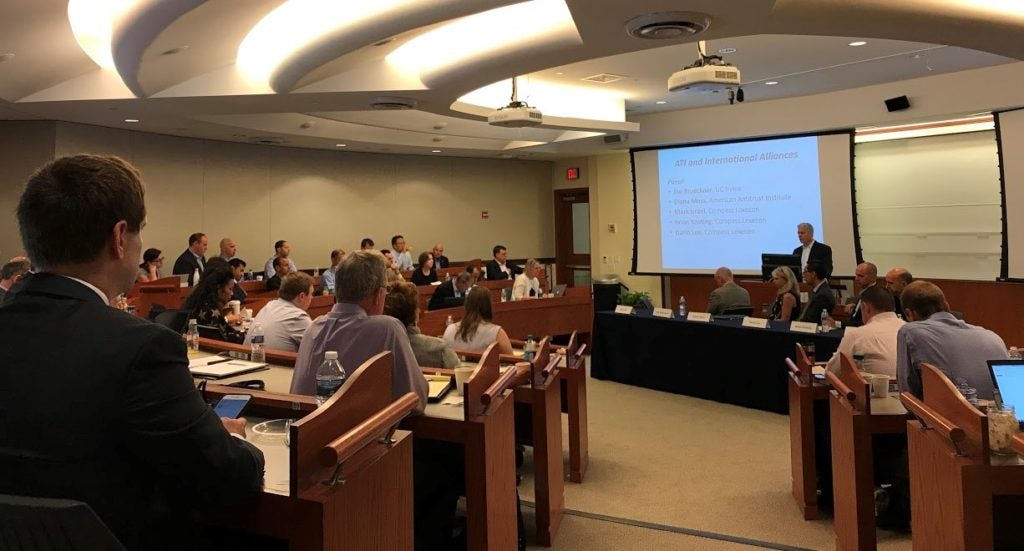Dr. Daniel Sokol, University of Florida Research Foundation Professor, presents the Airline Competition Conference at the CBPP
Posted in Announcements News

Conference affiliated papers: Access
Dr. Daniel Sokol, University of Florida Research Foundation Professor, organized and presented the “Airline Competition Conference” on July 17, at the Georgetown Center for Business and Public Policy with support from Compass Lexecon. The conference featured three expert panels:
Panel 1: Merger Retrospectives
Antitrust merger analysis is largely prospective. Merger retrospectives allow for an ex post assessment of the effects of a merger across a number of dimensions of competition: price, quality, variety, and innovation for the merged firms and their rivals. Merger retrospectives also allow for an evaluation of the efficacy of models used by enforcement agencies in reviewing mergers. In the context of airlines, not only merger retrospectives allow for an analysis of how a given merger may have impacted markets where merging airlines competed directly, but also those where the parties did not compete directly.
Speakers:
- Dennis Carlton, University of Chicago (Slides)
- Federico Ciliberto, University of Virginia (Slides)
- Dave Osinski, Federal Trade Commission (Slides)
- Dan Rubinfeld, University of California – Berkeley / New York University (Slides)
Moderator: Paul Denis, Dechert LLP
Panel 2: ATI: Case Studies and Consumer Benefits
Given foreign ownership constraints and the desire of carriers to offer seamless global networks, many U.S. carriers participate in alliances with foreign carriers. The U.S. Department of Transportation is authorized, under appropriate circumstances, to grant immunity from the U.S. antitrust laws (antitrust immunity or “ATI”) to these alliances. This panel will examine a number of the competitive issues associated with international alliances, including their impact on consumer welfare and the public interest, whether the rationale for ATIs has changed over time, and whether grants of antitrust immunity should be subject to a sunset provision.
Speakers:
- Jan Brueckner, University of California – Irvine (Slides)
- Mark Israel, Compass Lexecon (Slides)
- Brian Keating, Compass Lexecon (Slides)
- Darin Lee, Compass Lexecon (Slides)
- Diana Moss, American Antitrust Institute (Slides)
Moderator: Paul Yde, Freshfields (Slides)
Panel 3: Distribution Models for Airlines
Airlines offer differentiated products, and use differentiated strategies to make their products available to consumers. Some carriers rely solely on their own websites, while others participate extensively in online travel agencies and metasearch sites. In the latest formulation of the longstanding debate about whether carriers should be mandated to participate in various distribution channels, critics argue that limited distribution strategies unnecessarily increase search costs for consumers and that the government should mandate unrestricted distribution. These arguments ignore the fact that consumers already have a wide range of choices – including airline websites, online travel agencies (“OTAs”), metasearch sites, and travel agents – when comparing the fares from different airlines and selecting air carriers. There is no market failure, and competition, not regulation, will produce the most efficient, innovative, and transparent marketplace for consumers.
Speakers:
- Gary Doernhoefer, Journera
- Dan Kasper, Compass Lexecon
- Robert W. Kneisley, Southwest Airlines (Slides)
- Spencer Graf, Charles River Associates
Moderator: MJ Moltenbrey, Paul Hastings (Slides)
